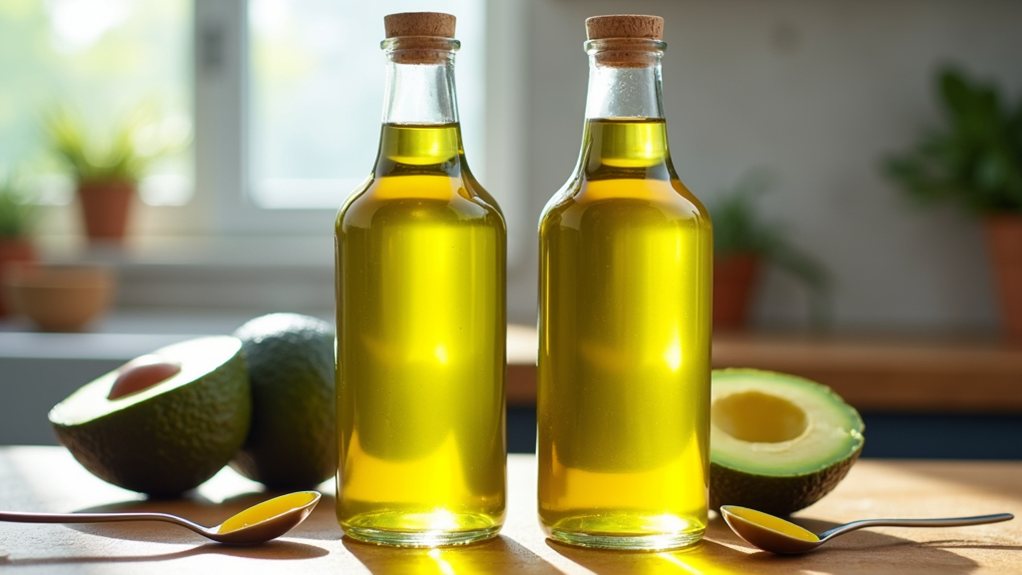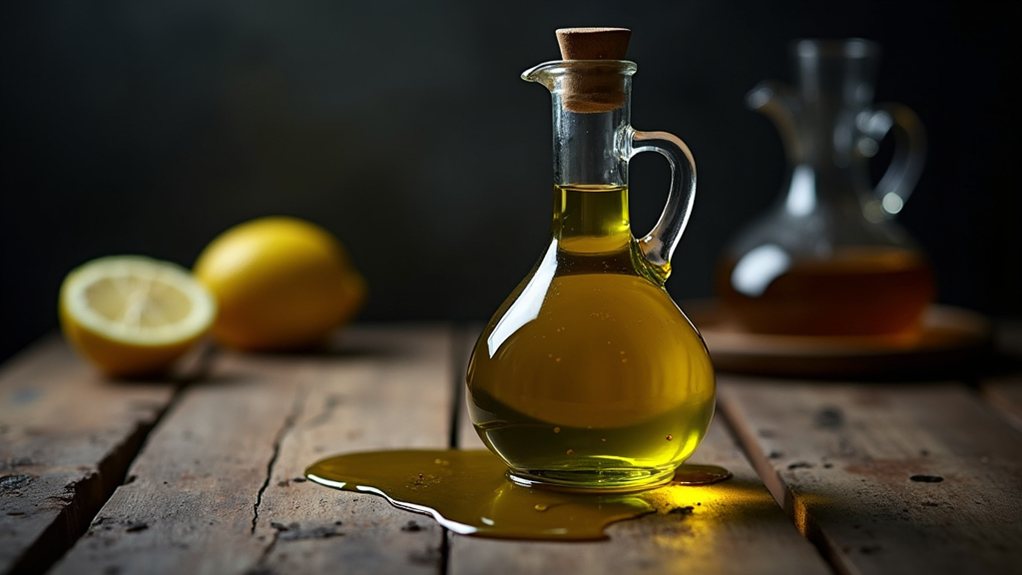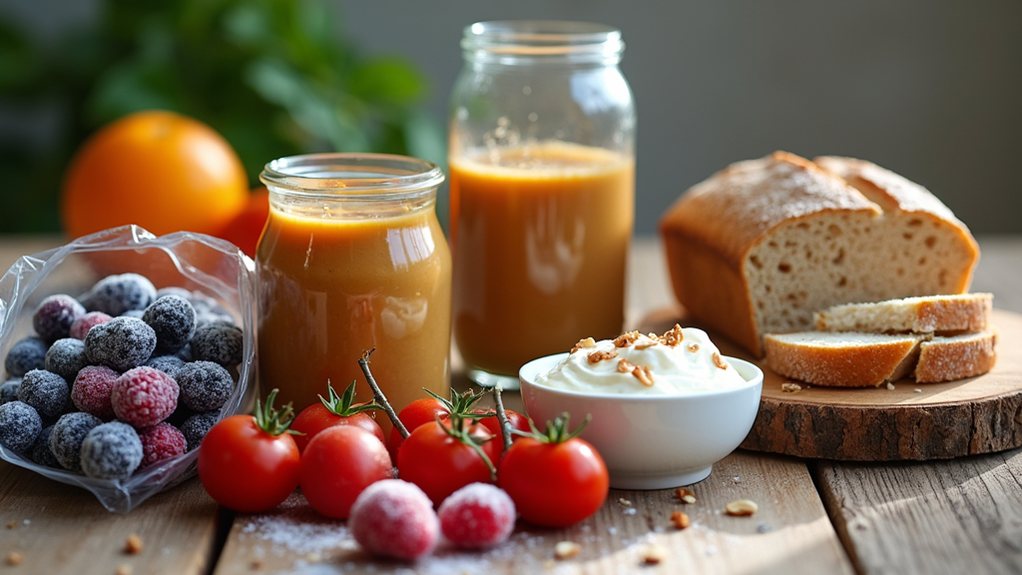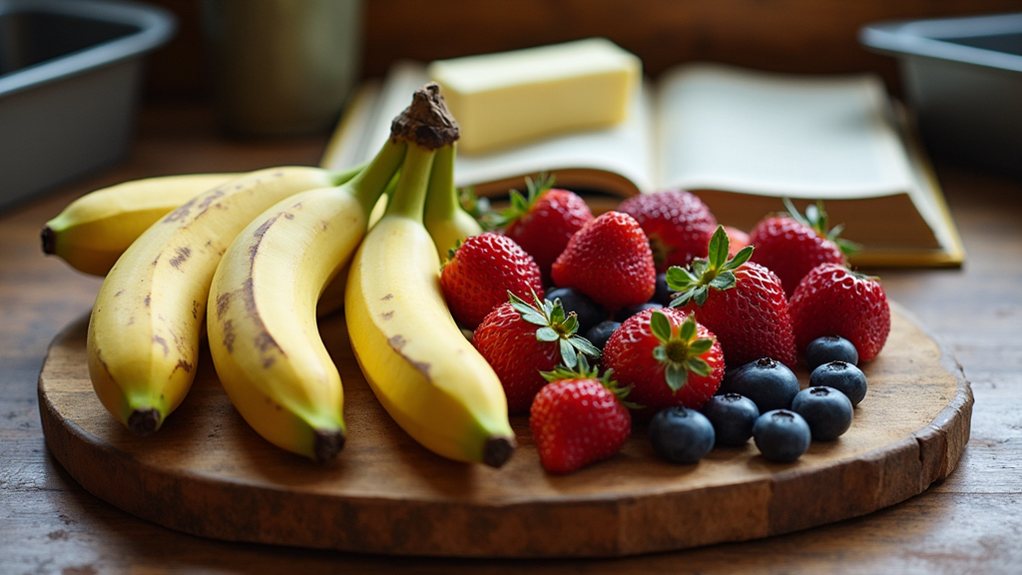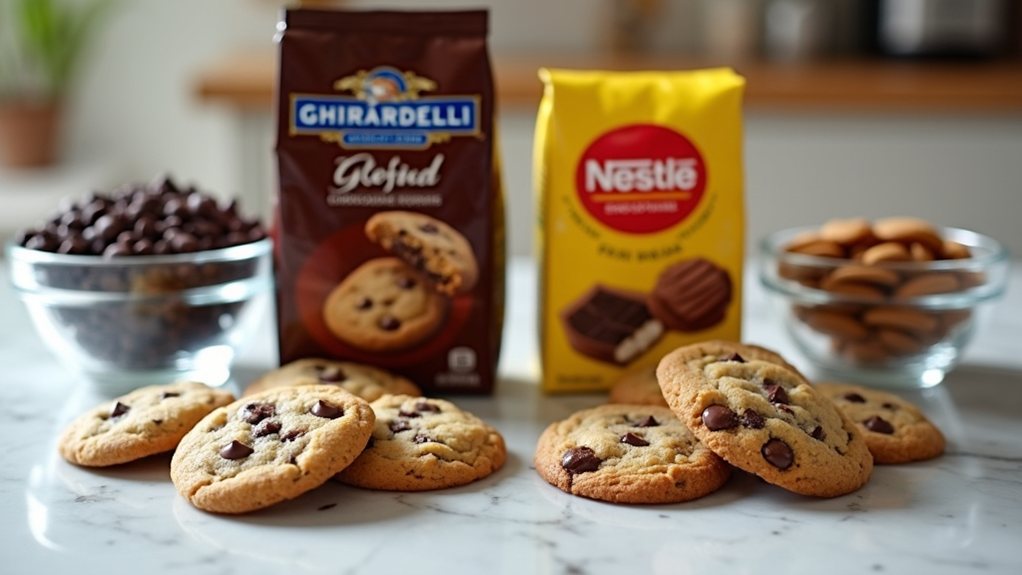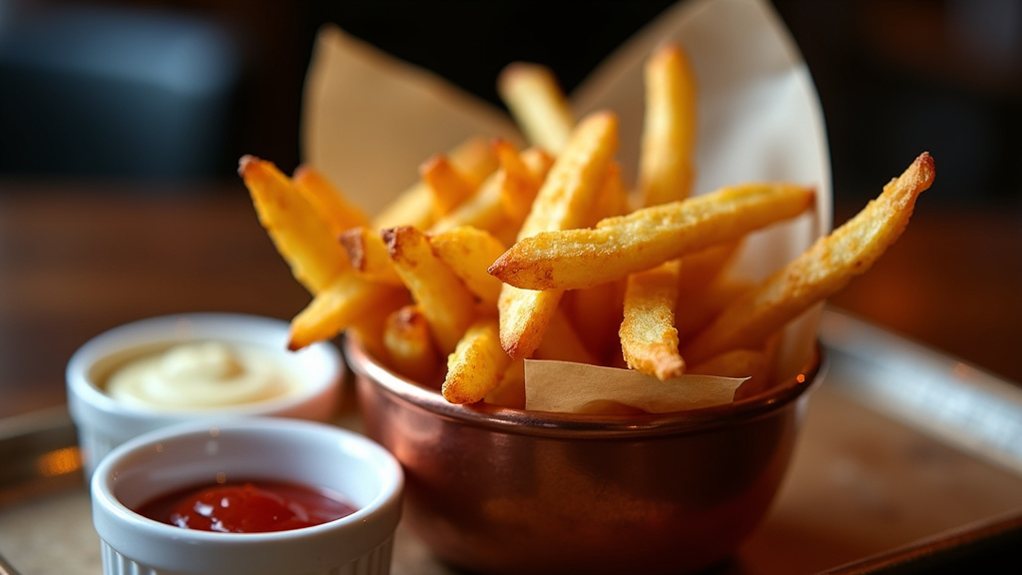Avocado oil’s transformation from fresh to rancid often happens right under consumers’ noses. Most people continue using their oil despite subtle changes in aroma, unaware that the Play-Doh or stale nut smell signals oxidation has occurred. This chemical process not only diminishes the oil’s nutritional benefits but can introduce potentially harmful compounds into meals. While the human nose possesses remarkable sensitivity to detect these alterations, many dismiss unusual scents as normal characteristics rather than warning signals. What other quality indicators might people be missing in their kitchens?
The Smell Test: Identifying Rancid Avocado Oil
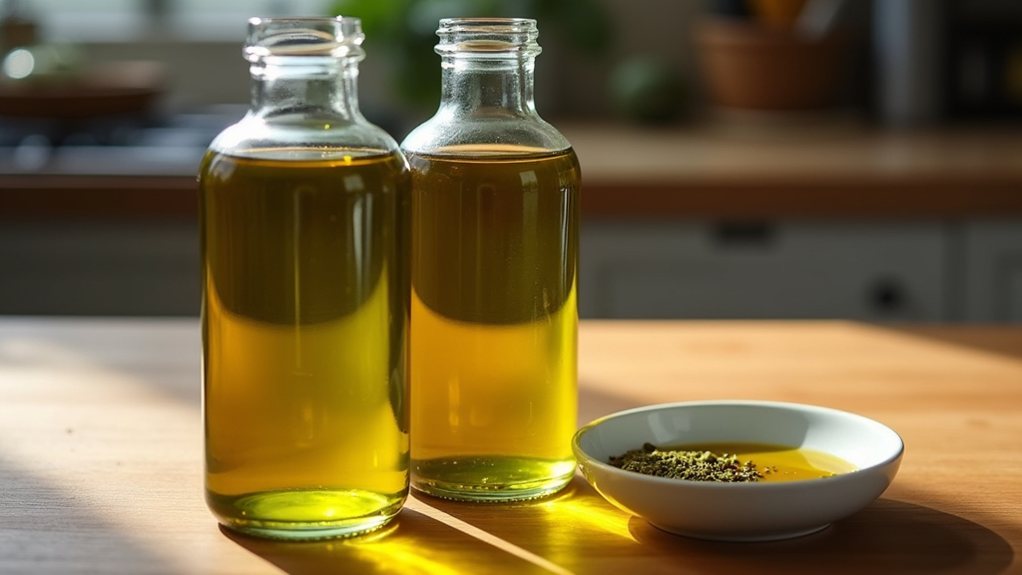
Avocados, valued for their nutritional advantages, yield an oil that can deteriorate with time and improper storage. Many consumers remain unaware of one of the most telltale indicators of spoilage: the distinctive smell that develops when avocado oil turns rancid. This olfactory change, often described as resembling Play-Doh or stale nuts, serves as nature’s warning system before the oil potentially causes digestive discomfort.
The chemical transformation occurring in deteriorating avocado oil involves oxidation, a process that happens when the oil’s unsaturated fatty acids react with oxygen. This natural chemical reaction accelerates when the oil is exposed to heat, light, or air, gradually transforming the once-neutral or pleasantly grassy aroma into something noticeably off-putting.
Surprisingly, many people continue using the oil despite this change, either because they’ve never experienced fresh avocado oil or they assume the unusual smell is normal.
Quality avocado oil typically presents a light yellow color if refined or a vibrant green if virgin pressed, with a mild, buttery flavor profile that complements many dishes. When shopping for avocado oil, consumers should examine production dates, opting for recently bottled products stored in dark glass containers that protect against light damage. Similar to how seasonal produce delivers superior flavor when purchased at optimal times, freshly pressed avocado oil offers the best quality and nutritional benefits. Paying attention to these details can help avoid purchasing oil that’s already compromised.
Storage practices greatly influence oil longevity, with experts recommending cool, dark environments away from stoves or windows. Similar to misplaced perishables at grocery stores that must be discarded when left in improper conditions, avocado oil requires proper handling to maintain quality. Even properly stored avocado oil typically maintains peak quality for only about six months after opening, though unopened bottles may last longer.
The “best by” date offers a guideline, but trusting your senses provides the most reliable assessment of quality. A concerning study revealed that nearly 70% of private label avocado oils are either rancid or adulterated with other oils.
Health-conscious consumers should recognize that rancid oils lose their nutritional benefits, particularly their valuable antioxidants. Furthermore, some research suggests that regularly consuming oxidized oils may contribute to inflammation and other health concerns. The lack of established international standards for avocado oil, unlike olive oil, makes it even more important for consumers to rely on their senses when evaluating quality.
